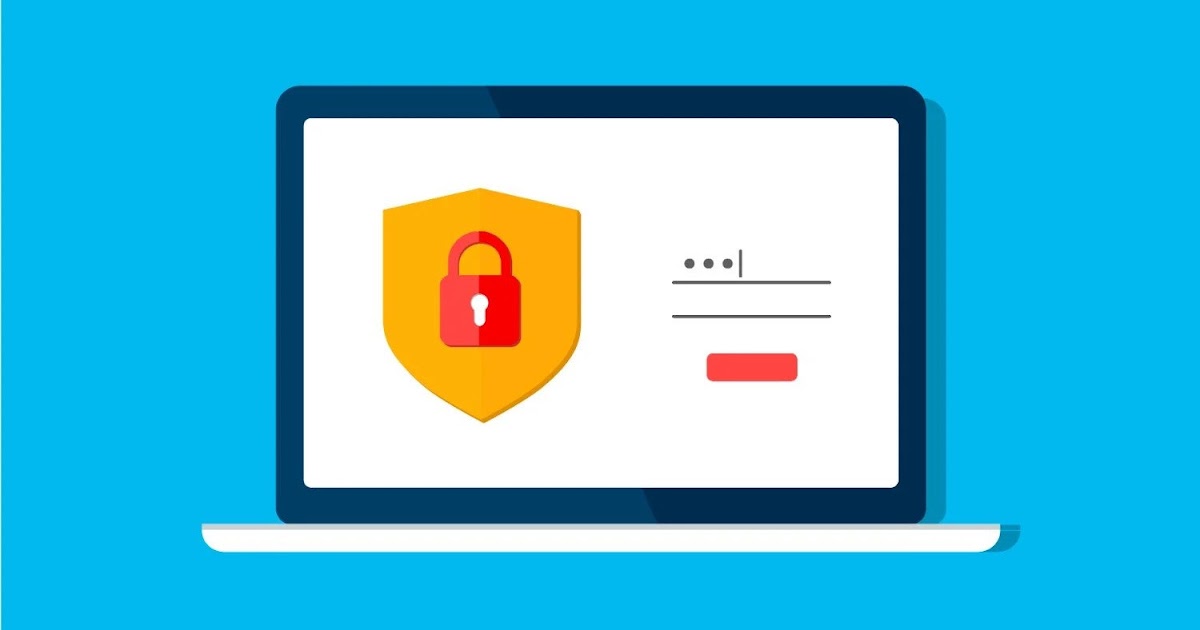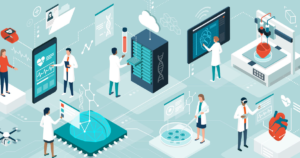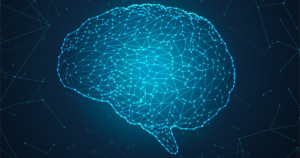Safeguarding Your Passwords and Personal Data: Cybersecurity Tips
In an age defined by the constant exchange of digital information, safeguarding your passwords and personal data is of paramount importance. Cybersecurity is no longer an option but a necessity. This article delves into the intricacies of securing your digital life, offering a comprehensive guide to protect what matters most.
The Importance of Cybersecurity
Cybersecurity has transcended buzzwords and jargon to become a fundamental aspect of modern life. As technology evolves, so do the methods of cyberattacks. Understanding the significance of cybersecurity is the first step toward safeguarding your digital existence.
The world we inhabit today is more interconnected than ever, with our online presence playing a crucial role in our personal, financial, and professional lives. Protecting this online identity is essential to maintain our integrity, privacy, and peace of mind.
The Growing Threat of Data Breaches
Data breaches are no longer rare occurrences; they have become a constant menace. The digital landscape is teeming with hackers, criminals, and malicious entities seeking to exploit vulnerabilities. We’ll explore the ever-increasing threat of data breaches and their potential consequences.
What Is Personal Data?
Before we dive into cybersecurity tips, it’s vital to grasp what personal data encompasses. From your email address to your financial information, personal data is any data that can be linked to you as an individual. Understanding this concept lays the foundation for the protective measures to follow.
Password Security

The Anatomy of a Strong Password
A strong password is your first line of defense against cyber threats. It should be an intricate blend of upper and lower case letters, numbers, and special characters. Avoid easily guessable passwords, such as “123456” or “password,” as they offer minimal protection. A robust password is a unique combination of elements that would confound even the most sophisticated password-cracking algorithms.
Using Passphrases for Extra Security
Passphrases take password security to the next level. These are sentences or combinations of random words that are easy for you to remember but incredibly difficult for others to crack. We’ll explore the art of crafting uncrackable passphrases that add an extra layer of security to your accounts.
Password Managers

Benefits of Using Password Managers
Managing numerous complex passwords can be a daunting task. This is where password managers come to the rescue. We’ll delve into the benefits of using password managers, which not only store your passwords securely but also offer the convenience of auto-filling login credentials.
Popular Password Manager Options
Choosing the right password manager is pivotal. We’ll explore some of the most popular and trusted password manager options, giving you the information you need to make an informed decision.
Two-Factor Authentication (2FA)
What Is 2FA?
Two-Factor Authentication (2FA) is a robust security feature that adds an extra layer of protection to your accounts. In this section, we’ll explain what 2FA is and how it works to keep your accounts safe from unauthorized access.
Setting Up 2FA for Your Accounts
Implementing 2FA is a straightforward process, yet it significantly enhances your account security. We’ll guide you through the steps to set up 2FA for various platforms and services, ensuring your online presence is well-guarded.
Safe Online Practices
Recognizing Phishing Emails
Phishing attacks are a common way for cybercriminals to trick individuals into revealing sensitive information. We’ll teach you how to recognize phishing emails, from subtle cues to glaring red flags.
How to Stay Safe from Phishing
Knowing how to identify phishing emails is one thing, but staying safe from them is another. We’ll provide practical tips and strategies to protect yourself from falling victim to these deceptive attacks.
Secure Browsing Habits
HTTPS and SSL Certificates
The security of websites you visit is crucial. We’ll discuss the significance of HTTPS and SSL certificates, which indicate that a site encrypts data during transmission, preventing eavesdropping and tampering.
Updating Your Browser for Security
Outdated browsers are vulnerable to exploits. Learn why keeping your web browser up to date is essential for a secure online experience, and how to enable automatic updates for various browsers.
Public Wi-Fi Risks

Dangers of Public Wi-Fi
Public Wi-Fi networks can be breeding grounds for cyber threats. We’ll uncover the potential dangers of connecting to unsecured public Wi-Fi and how hackers exploit these networks to steal your data.
Protecting Your Data on Public Networks
Practicing safe public Wi-Fi habits is essential. We’ll share precautions and best practices for protecting your data while using public networks, ensuring your online activities remain private and secure.
Protecting Your Personal Data
Understanding Data Encryption
Data encryption is a formidable defense against unauthorized access. We’ll explain the concept of data encryption and its role in securing your personal data.
Encrypting Sensitive Files
Learn how to encrypt sensitive files and folders to ensure that even if your device falls into the wrong hands, your data remains inaccessible to prying eyes.
Social Media Privacy Settings
Adjusting Privacy Settings on Social Media
Social media platforms are treasure troves of personal information. We’ll guide you through the process of adjusting privacy settings on popular social media platforms to control who sees your data.
The Impact of Oversharing
Oversharing on social media can inadvertently expose personal data. We’ll explore the potential consequences of oversharing and offer tips on how to maintain a balance between sharing and protecting your privacy.
Data Backup and Recovery
Importance of Regular Backups
Data loss can be catastrophic, but regular backups provide a safety net. We’ll stress the importance of creating backups and explain how they serve as a failsafe for your valuable information.
Creating an Effective Backup Strategy
A solid backup strategy involves more than just copying files. We’ll outline an effective backup plan, covering frequency, storage options, and how to ensure your backups are secure.
Device Security
Why Software Updates Matter
Software updates are not just about new features; they often contain critical security patches. We’ll shed light on why keeping your software updated is essential to your device’s security.
How to Enable Automatic Updates
Enabling automatic updates ensures you don’t miss out on critical security patches. We’ll walk you through the process of enabling automatic updates on different operating systems and software.
Anti-Malware and Antivirus Software
The Role of Antivirus Software
Antivirus software is a crucial tool in your cybersecurity arsenal. We’ll explain its role in detecting and preventing malware infections, as well as how it complements other security measures.
Choosing the Right Antivirus Program
With a plethora of antivirus options, selecting the right one can be daunting. We’ll provide guidance on factors to consider when choosing antivirus software, empowering you to make an informed decision.
Mobile Device Security
Securing Your Smartphone and Tablet
Mobile devices are just as vulnerable to cyber threats. We’ll cover essential steps to secure your smartphone and tablet, from locking your screen to managing app permissions.
Apps and Permissions: What to Look Out For
Mobile apps often request access to various device functions and data. We’ll teach you how to scrutinize app permissions and make informed decisions to protect your personal information.
Email Security
The Significance of Email Encryption
Emails can contain sensitive information, making email encryption vital. We’ll explore the significance of email encryption and how it safeguards your communication.
Setting Up Encrypted Email
Implementing email encryption can be straightforward. We’ll guide you through the process of setting up encrypted email, ensuring your email correspondence remains confidential.
Email Attachments and Links
Safety Precautions for Opening Attachments
Email attachments and links can be vehicles for malware. We’ll provide safety precautions to follow when opening email attachments, reducing the risk of falling victim to malicious files.
Verifying Links and URLs
Phishing emails often contain deceptive links. We’ll teach you how to verify links and URLs in emails to ensure they lead to legitimate websites and not malicious destinations.
Conclusion
In a world driven by digital innovation and connectivity, the realm of cybersecurity is continually shifting, responding to the ever-evolving landscape of cyber threats. As we’ve navigated through the intricacies of safeguarding your passwords and personal data, it becomes abundantly clear that the journey towards online security is an unending expedition.
Adapting to the Ever-Changing Landscape
Cybersecurity is not a static fortress, but a dynamic defense system. Threats emerge in novel and unexpected forms, making it imperative that you adapt your approach in tandem with these challenges. Staying informed about the latest cybersecurity developments is not just a piece of advice; it’s a survival strategy in the digital world. Awareness allows you to grasp emerging threats and employ appropriate countermeasures swiftly.
The Power of Vigilance
Vigilance stands as your armor in the realm of cybersecurity. It’s not only about establishing secure passwords and following a checklist but also about remaining watchful, questioning the legitimacy of unexpected communications, and promptly recognizing potential vulnerabilities.
Building a Secure Digital Tomorrow
In a society where the digital realm continues to expand its influence, creating a secure digital future is a shared commitment. Each individual’s active participation in fortifying their online presence contributes to a collective shield against malicious actors. By implementing the multifaceted cybersecurity strategies we’ve explored, you are not only protecting yourself but also becoming a vital component of a broader cybersecurity ecosystem.
In closing, the responsibility for your online security lies squarely with you. Knowledge and vigilance are your most potent allies on this journey, and by staying informed, vigilant, and proactive, you play a pivotal role in crafting a secure digital future for yourself and generations to come.
Frequently Asked Questions (FAQ) About Safeguarding Your Passwords and Personal Data: Cybersecurity Tips
What is the primary goal of cybersecurity?
The primary goal of cybersecurity is to protect digital assets, including personal data, from unauthorized access, data breaches, and cyberattacks by implementing various security measures and best practices.
Why are strong passwords essential for online security?
Strong passwords are essential because they are the first line of defense against unauthorized access. They make it significantly harder for hackers to guess or crack your credentials, reducing the risk of data breaches.
What is two-factor authentication (2FA), and how does it enhance security?
2FA is an extra layer of security that requires users to provide two forms of identification before accessing an account. It enhances security by adding an additional barrier, making it more challenging for unauthorized users to gain access.
How can I recognize phishing emails, and why are they dangerous?
Phishing emails often appear as seemingly legitimate messages but contain malicious links or attachments. Signs of phishing include generic greetings, misspelled URLs, and urgent demands for personal information. They are dangerous because they aim to trick you into revealing sensitive data or installing malware.
What are HTTPS and SSL certificates, and why are they important for secure browsing?
HTTPS is a secure communication protocol, and SSL certificates encrypt data transmitted between your browser and a website, preventing eavesdropping and data tampering. They are crucial for secure browsing, ensuring the privacy and integrity of your data.
Why is public Wi-Fi risky, and how can I protect my data on public networks?
Public Wi-Fi networks are risky because they are often unsecured, making it easier for hackers to intercept your data. To protect your data on public networks, use a virtual private network (VPN) and avoid accessing sensitive information when connected to these networks.
How does data encryption work, and why is it important for personal data protection?
Data encryption converts data into a code, making it unreadable to unauthorized users without the decryption key. It is vital for personal data protection as it ensures that even if data is intercepted, it remains confidential.
What social media privacy settings should I adjust to enhance my online privacy?
Adjusting privacy settings on social media platforms allows you to control who can see your posts and personal information. You should customize settings for profile visibility, post sharing, and third-party app access to protect your privacy.
Why is it important to back up data, and what constitutes an effective backup strategy?
Data loss can occur due to hardware failures, accidents, or cyberattacks. An effective backup strategy involves regular backups, secure storage options, and a well-thought-out plan for quick data recovery in case of emergencies.
What are the key considerations when choosing antivirus software, and how does it complement other security measures?
When choosing antivirus software, consider factors such as real-time protection, update frequency, and additional features. Antivirus software complements other security measures by detecting and removing malware, providing an additional layer of defense against cyber threats.
How do I set up email encryption, and why is it important for secure communication?
To set up email encryption, you can use secure email services or encryption plugins. It’s essential for secure communication because it prevents unauthorized access to the content of your emails, safeguarding sensitive information.
What precautions should I take when opening email attachments, and why are they potential security risks?
When opening email attachments, avoid opening files from unknown senders, and scan attachments for malware before opening. They are potential security risks as they may contain viruses, ransomware, or other malicious software that can compromise your system.
How can I secure my mobile devices, such as smartphones and tablets, from cyber threats?
You can secure mobile devices by enabling device lock screens, installing security apps, and keeping software updated. Additionally, be cautious of app permissions and only download apps from reputable sources to protect your mobile device from cyber threats.
What should individuals and organizations do to stay informed about evolving cybersecurity threats?
Individuals and organizations should stay informed by following reputable cybersecurity news sources, subscribing to threat intelligence feeds, and participating in cybersecurity awareness training. Regularly updating knowledge is key to staying ahead of evolving threats.
How can individuals contribute to a more secure digital future for themselves and society as a whole?
Individuals can contribute to a more secure digital future by practicing good cybersecurity habits, educating others on safe online practices, and reporting suspicious activities. Additionally, supporting and advocating for robust data protection and privacy legislation can help strengthen cybersecurity for society as a whole.
Can you recommend a reliable antivirus software for personal use?
Certainly, a highly recommended antivirus software for personal use is Bitdefender. It offers comprehensive protection against a wide range of threats, including malware, ransomware, phishing, and more. Bitdefender’s real-time scanning and frequent updates make it a top choice for safeguarding your personal devices.
In our previous article on data protection, we discussed the significance of strong passwords and the importance of two-factor authentication (2FA) in securing your online presence. Now, let’s dive into more advanced techniques for safeguarding your personal data. To reinforce the importance of 2FA, consider implementing it alongside these advanced cybersecurity measures. For a comprehensive guide on enhancing online security, continue reading our article on “The Surge of Ransomware Attacks: How to Defend Yourself“.
For additional insights into the ever-evolving world of cybersecurity, we recommend exploring reputable sources like Medium. These high-authority blogs offer in-depth analysis, breaking news, and expert commentary on the latest cyber threats, data breaches, and emerging security technologies. Staying updated with these industry leaders is essential to fortifying your knowledge and staying ahead in the cybersecurity landscape.




Uma resposta